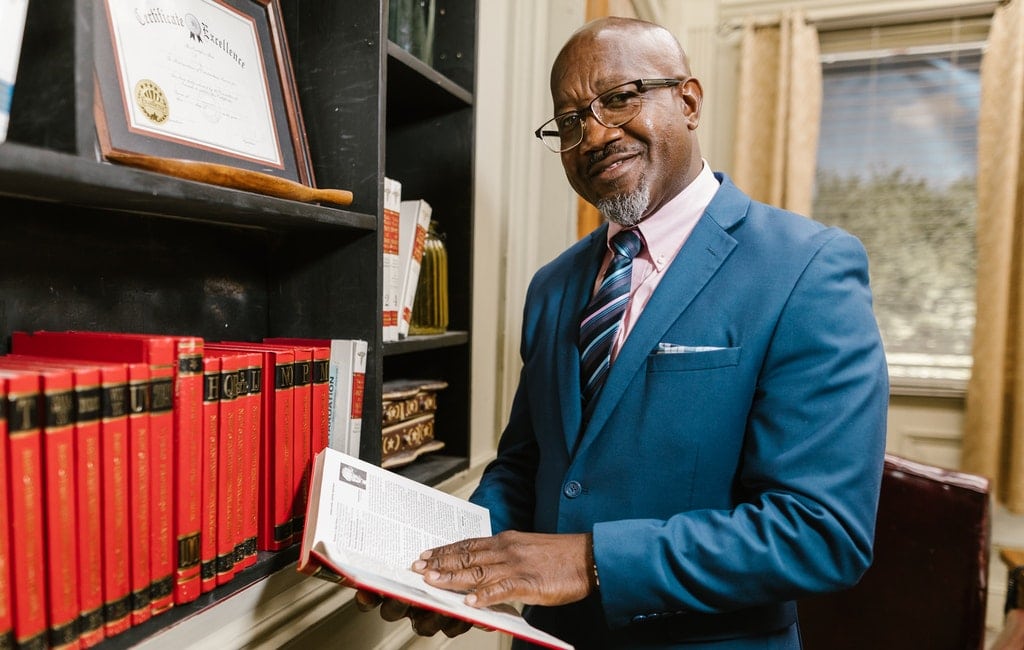The characteristics and qualities of a leader play a significant role in a team and company. Effective leaders are efficient in leading collaboratively and compassionately. The followers of effective leadership want to work with them and help achieve their vision. Achieving and honing effective leadership skills takes time and effort. However, it is a worthwhile investment as the results enhance the chances of success for the team and company.
We have curated a list of the most common traits and qualities that make effective leaders, which are described as follows.

Concise and Smart Vision
An effective leader with vision has an obvious idea of what they want to do, where they want to go, and achieving their success easily. To become an effective leader, make sure to idealize and clear vision and goals with a passion so that your team understands how the individual efforts participate in the higher-level goals. Working towards your vision personally with consistency and passion will motivate others to do the same.
Lead by example
Act and demonstrate the conduct which you want people to follow. You should set high standards for even yourself if you demand and expect high from your team. Organizing your work and actions will help build your trust and ensure your team will follow your example.
Demonstrate integrity
A leader who possesses integrity works on their values to guide their conduct, decisions, and dealings with other people. They are clear in their deeds and a conviction, knowing what is right and wrong. Moreover, they are respected for being moral, genuine, consistent, and ethical. They are bound to their sayings, keep their promises, and have strong characters.
In addition, they communicate honestly, directly, and openly with others. Your employees will award you with their loyalty, respect, and confidence by displaying integrity in your routine actions.

Communicate effectively
An effective leader must have the most important skill of communicating concisely and clearly. Communication is more than merely listening attentively to others and responding to them properly. Effective communication also involves sharing valuable information, giving and accepting new ideas, and asking intelligent questions. It also includes clearing misunderstandings and being assertive about what you want to ask and do.
Motivation
If somebody aspires to be an effective leader, they should be well motivated. The inner drive and motivation are reflected in various common ways. They strive for achievements and victories, reflecting the greater effort levels. They come with great ambitions, goals, and objectives and work with great energies. Such leaders are tenacious and take the initiative to achieve the aims and objectives rather than wait for someone to do for them.
Recognize success
One of the most influential qualities of an operative leader is the frequent and consistent recognition of achievement. To make themselves flexible and put their best efforts, they need to determine their work and efforts will be appreciated and valued. Find alternative ways to celebrate the victories and achievements of your team members, even if it’s through a simple ‘well done’ remark. It will be good to boost morale and strengthen their inspiration to continue giving their best.
Make challenging decisions
Being an effective leader, the capacity to make challenging decisions with limited information is overwhelming and hard. When facing a difficult decision, start by knowing what you are trying to achieve. Consider the consequences that are similar to your decision and available alternative options. Make your ultimate decision and take responsibility for it with passion. Being a confident and committed decision-maker will help you capitalize on the chances and earn the respect of your team members.
Empower others
Effective leaders understand it is essential for the people to develop a sense of ownership over their work and their meaningful actions. Communicate the goals and deadlines with your team clearly and then provide them the authority and autonomy to plan how the task gets done. Challenge them with high expectations and appreciation to enhance creativity and innovation.
Motivate and inspire your team
The best and effective leaders take their team forward with motivation, dedication, and enthusiasm. Invest your valuable time in your team by engaging their strengths, preferences, and requirements. It is best to provide your team with a feeling of comfort by appreciating them and making them feel valuable to the company. This strategy will help you to understand the best way to appreciate them. Continuously inform how their efforts are making a difference before and after their hiring and encourage the development of their abilities with valuable aims and objectives.
Passion
To be an effective leader, you need to have the most outstanding quality of passion. An effective leader should have a passion for a cause that is bigger than them. An individual with a dream and vision can play their part in making a better society. More importantly, an effective leader can only make difficult and courageous decisions and carry them on the road to success with a strong passion. However, not all decisions are necessary of this type and nature, but it would help if you were sure some of them could be.
Intellectual knowledge and drive
The leader has to be a student of life and keep acquiring more and more skills. Being a student and learner, he will be aware of advanced technology and innovative ideas to compete in the competitive market. Today in the fast age, no one can be an effective leader without knowing and skill as this is the need of the time.
Strong Values, Humility, and Confidence
Leadership implies strong values that contribute heavily towards the betterment of society. It is the only type of leadership that underdeveloped countries need the most. The values include respect, warmth, and compassion. An effective leadership exudes confidence and is aware of their self-worth. Even if a person possesses good ideas, a great vision for change, and passion for it, if they are not confident, then actions cannot proceed. Without actions, there will be no change. Moreover, they are not swayed by the innovative and challenging members of the team. They know that on a team they share a common goal so they welcome ideas from the panel.
Therefore, to become a good leader, you must have the humility to accept and adapt the ideas from your team. Bright ideas and opinions can come from the innovative minds of young team members. A leader must be able to identify it, as it also shows they are valuing the professional and skilled people on their team.
Organizer and planner
A good organizer and planner is an individual who can provide foresight on what needs to be done and help organize and plan the team to get the task done. Good management skills are always in high demand, as a large portion of the job is to manage people and their duties. While another visionary person can be very influential for the change, this is not required in the definition of an effective leader. However, acquiring this skill can make their life as a leader more effective and smooth.
Open-mindedness
At the same time, effective leaders should be broadminded and open to new experiences and innovations. They understand that uniqueness is valuable, and they also try to consider suggestions and ideas from others. Self-esteem and self-confidence do not have to dispute with the spirit of broadmindedness. When they do this, this will lead to harmful results.
Extraversion
Another amazing trait that is commonly seen ineffective leader is extraversion. Leaders with social and outgoing personalities are enthusiastic about taking up initiatives and connecting others through relationships. However, other abilities and strengths can often compensate for not being an extrovert. On certain occasions, introverted leaders can train themselves to adapt to social scenarios to achieve their goals. However, this change is temporary and will not alter the basic personality of the leader.
Mark Zuckerberg, CEO of Facebook, and Bill Gates, CEO of Microsoft are two prominent examples of great introverts by nature and personality, but their outstanding leadership is parallel to none.
Knowledge of business
Even if the individual has all leadership qualities, but lacks in experience and knowledge, he can’t excel as he won’t be able to get through the challenging situations that require detailed awareness on the subject. Effective leaders are skilled professionals and experts with deep insight and competence in their field. Therefore, to become an effective leader you need to have a solid knowledge base to compete in the market.
Final verdict
Hence, it is clear from the above-mentioned qualities of effective leaders that leadership can make or break a team. Effective leaders know how to lead from the front so that their team members and the followers want to work with them to help achieve their goals. Effective leaders are knowledgeable, compassionate, and respectful professionals with a clear direction and vision to achieve their end goals. Acquiring new leadership skills and practices is a time-consuming and effort-making process but it is worthwhile and improves your chances of career success.
